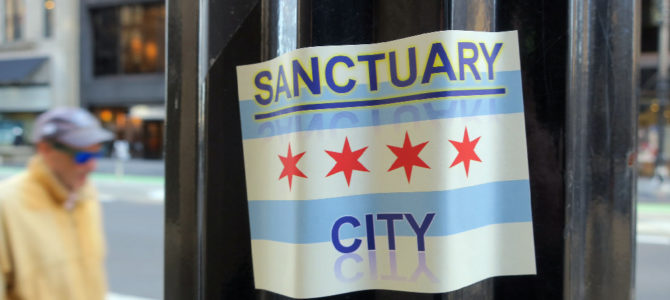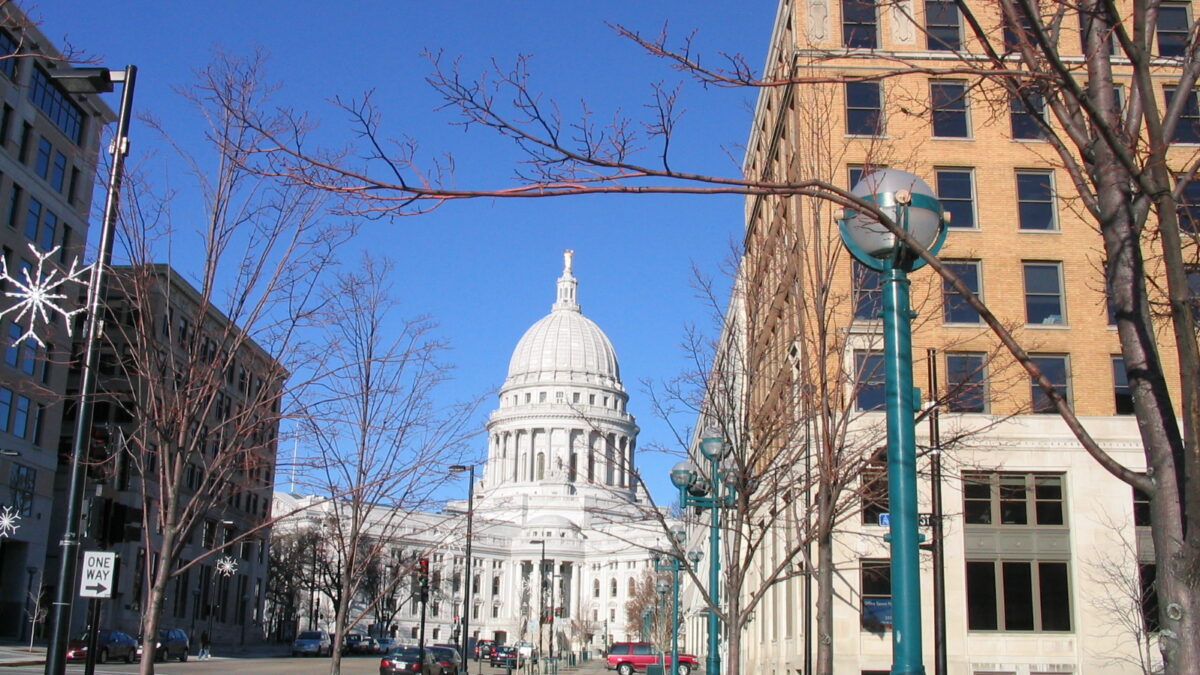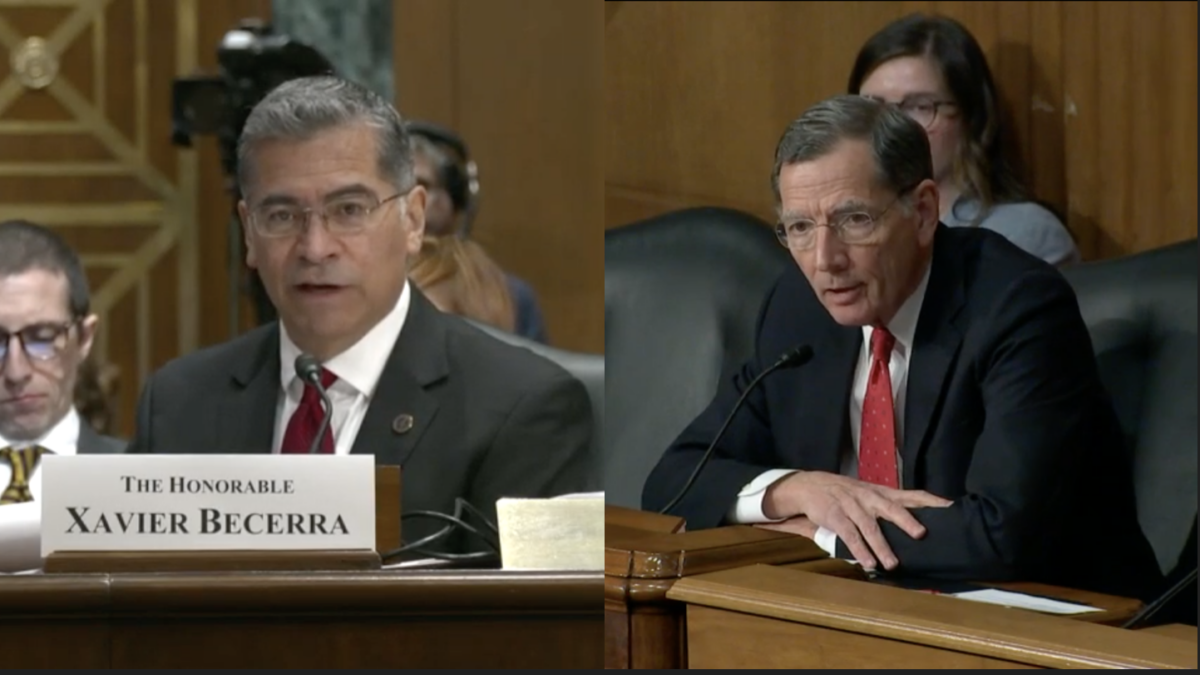
The Trump administration sued California in a federal district court late Tuesday over its “sanctuary city” designation, arguing federal immigration law preempts three of the state’s laws.
The Department of Justice noted in a statement one of the three laws prohibits private employees from “voluntarily cooperating with immigration officials” and requires employers to give employees advance notice of a potential worksite enforcement inspection.
California Attorney General Xavier Becerra, named a defendant in the suit, said after the law became effective Jan. 1 that he would “prosecute those who violate [Assembly Bill 450] by voluntarily cooperating with Immigration and Custom Enforcement (ICE) efforts.” He later told employers that under the new law they can’t voluntarily grant ICE agents “physical access to nonpublic areas of the worksite or to employee records” without triggering legal penalties.
The second California law challenged bars state and local law enforcement officials from informing federal immigration agents of the release date of criminal aliens and prohibits state employees from transferring criminal aliens to federal custody, except in narrow circumstances. This one, Senate Bill 54, also became effective on Jan. 1.
The third bill, Assembly Bill 103 adopted June 27 of last year, authorized the California AG to inspect immigration detention facilities in the state to examine the “due process provided” immigration detainees, and “the circumstances around their apprehension and transfer to the facility.” This law also requires detention facilities to provide state officials access to confidential federal records.
The DOJ argues in its complaint the three laws — AB 450, SB 54, and AB 103 — conflict with federal immigration law and are thus invalid under the Supremacy Clause. With the complaint, the DOJ filed a motion for a preliminary injunction, seeking to pause enforcement of the California statutes until the lawsuit is played out in court.
The case was assigned to Judge John A. Mendez, who was appointed to the bench by former President George W. Bush and confirmed to the serve on the Eastern District of California court in 2008. The parties have been ordered to file a stipulated briefing schedule by Friday, but absent agreement the court will set a briefing schedule and hearing date.
The lawsuit is but the latest effort by the Trump administration to combat the chaos caused by sanctuary cities. The DOJ in August of last year first attempted to pressure sanctuary cities to cooperate with federal law enforcement agencies when it updated the conditions imposed on state and local governments seeking federal funds through the Byrne JAG grant program.
However, Chicago, which has received millions of dollars in funding, “including $33 million to purchase nearly 1,000 police cruisers,” challenged the DOJ’s move in federal court and obtained a preliminary injunction in September, 2017, from a Chicago-based district court judge, enjoining enforcement of the condition on a nationwide basis. The DOJ immediately appealed that decision to the Seventh Circuit and is currently waiting a decision on the merits.
The DOJ’s next tack took the form of a demand in late January to twenty-three “sanctuary” jurisdictions, requesting “additional documentation to ensure those cities, counties, and states were complying with federal law.” This effort made news when high-profile sanctuary cities, such as Chicago and New York, boycotted a meeting with Trump to discuss the cities’ crumbling infrastructure that had been scheduled for later the same day. Yesterday, an official with the DOJ confirmed that all 23 jurisdictions have responded to the request and that the DOJ is reviewing the submitted documentation on a rolling basis.
The DOJ’s lawsuit against California, however, will likely prove more effective than its attempts to withhold Byrne JAG grant funding — and for that the the Trump administration can thank former President Barak Obama whose challenge to Arizona’s “Support Our Law Enforcement and Safe Neighborhoods Act,” established Supreme Court precedent validating the current DOJ’s position.
In Arizona v. United States, the Supreme Court made two points clear in an opinion authored by Justice Anthony Kennedy. First, the federal government “has broad, undoubted power over the subject of immigration and the status of aliens.” And second, “that federal law ‘shall be the supreme Law of the Land,” and “under this principle, Congress has the power to preempt state law.” The Court then explained that federal law preempts state law where Congress expressly withdrew “specified powers from the State” or “so pervasively” regulated an area of the law that it “left no room for the States to supplement it,” or where the state law conflicts with federal law. Applying these well-established principles of preemption, the Supreme Court struck down three of Arizona’s provisions.
The Arizona holding will govern the DOJ’s current case against California, and it is difficult to conceive of a situation in which all three California statutes will survive. As the Court in Arizona made clear, state statutes that conflict with a federal law are preempted, and, “This includes cases where ‘compliance with both federal and state regulation is a physical impossibility,’ and those instances where the challenged state law ‘stands as an obstacle to the accomplishment and execution of the full purpose and objectives of Congress.’”
California, and other sanctuary cities and states, seek to obstruct the federal government in its execution of federal immigration law. While the Obama Administration condoned this conduct, Attorney General Jeff Sessions made clear with this lawsuit that his DOJ will not tolerate it. “ICE agents are federal law enforcement officers carrying out federal law,” Sessions told the California Peace Officers’ Association yesterday. “California cannot forbid them or obstruct them in doing their jobs. California is using every power it has — and some it doesn’t — to frustrate federal law enforcement. So you can be sure I’m going to use every power I have to stop them,” he told the officers, before thanking them for their service and assuring them of the Trump Administration’s support.
We should know soon whether the federal courts will agree, or if they too will frustrate federal law enforcement efforts.









